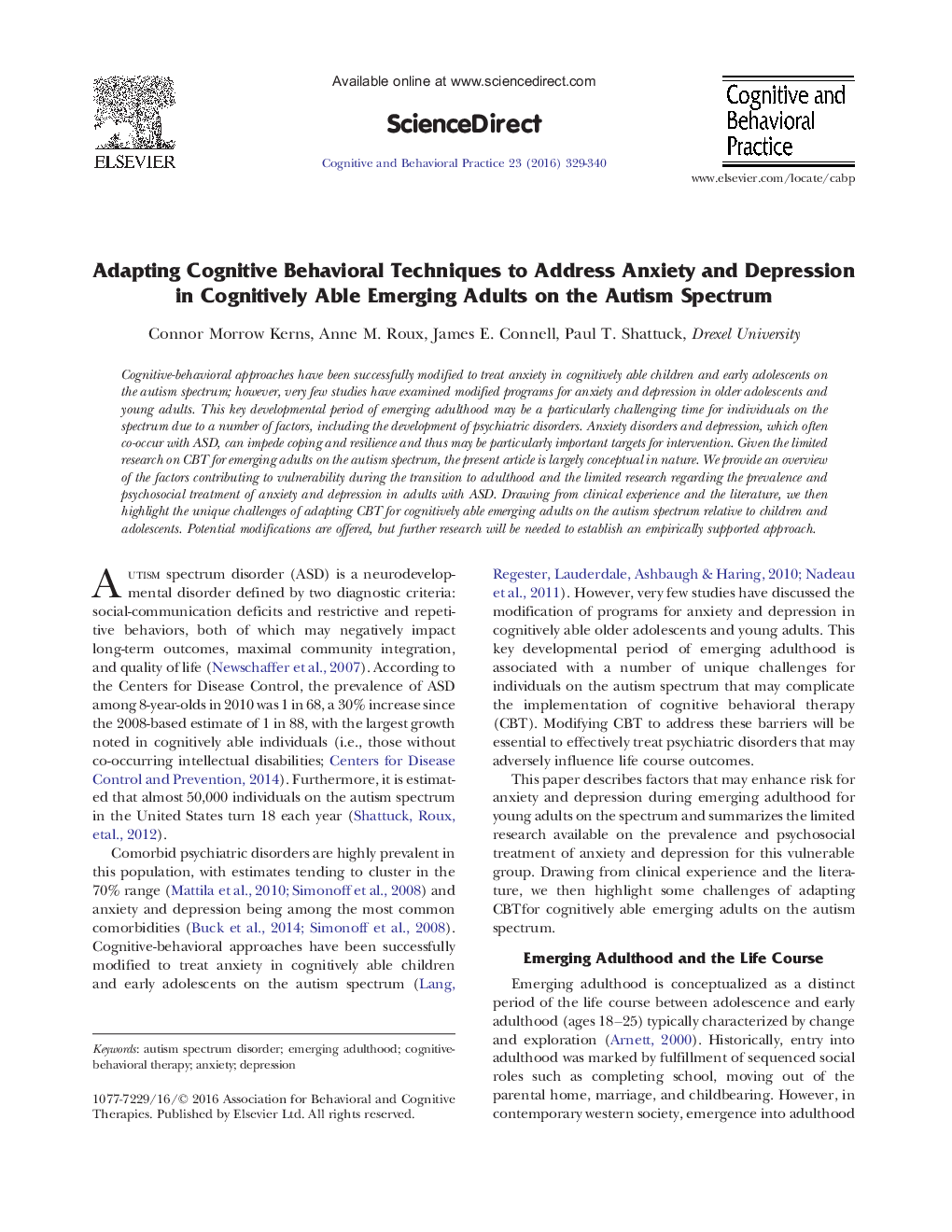| Article ID | Journal | Published Year | Pages | File Type |
|---|---|---|---|---|
| 904222 | Cognitive and Behavioral Practice | 2016 | 12 Pages |
•Emerging adulthood is a uniquely challenging period for individuals with ASD.•Vulnerability is enhanced due to psychiatric comorbidity.•CBT may be a helpful psychosocial treatment for this subgroup, but research is limited.•Challenges to implementing CBT for anxiety and depression in young adults with ASD are discussed.
Cognitive-behavioral approaches have been successfully modified to treat anxiety in cognitively able children and early adolescents on the autism spectrum; however, very few studies have examined modified programs for anxiety and depression in older adolescents and young adults. This key developmental period of emerging adulthood may be a particularly challenging time for individuals on the spectrum due to a number of factors, including the development of psychiatric disorders. Anxiety disorders and depression, which often co-occur with ASD, can impede coping and resilience and thus may be particularly important targets for intervention. Given the limited research on CBT for emerging adults on the autism spectrum, the present article is largely conceptual in nature. We provide an overview of the factors contributing to vulnerability during the transition to adulthood and the limited research regarding the prevalence and psychosocial treatment of anxiety and depression in adults with ASD. Drawing from clinical experience and the literature, we then highlight the unique challenges of adapting CBT for cognitively able emerging adults on the autism spectrum relative to children and adolescents. Potential modifications are offered, but further research will be needed to establish an empirically supported approach.
